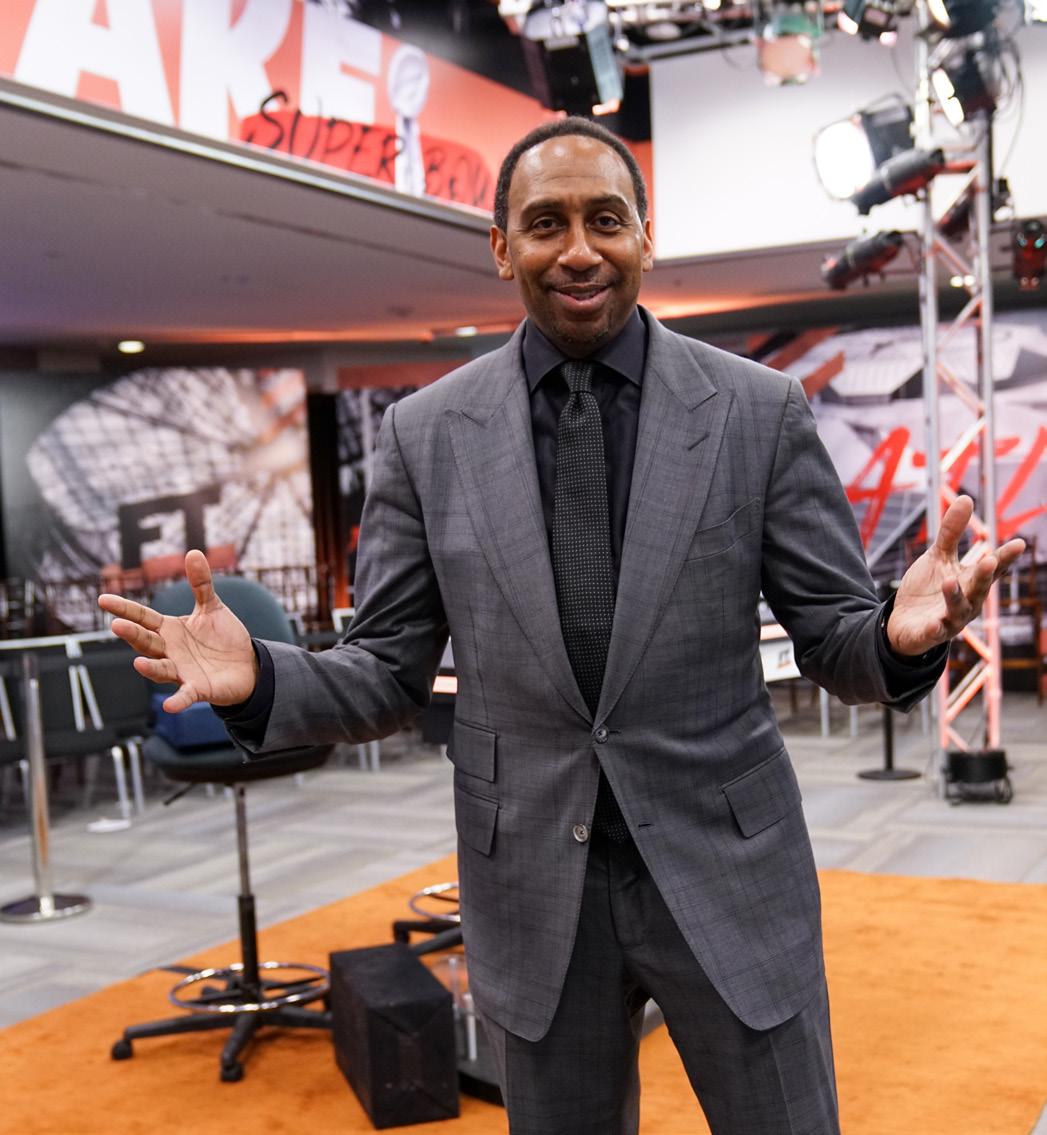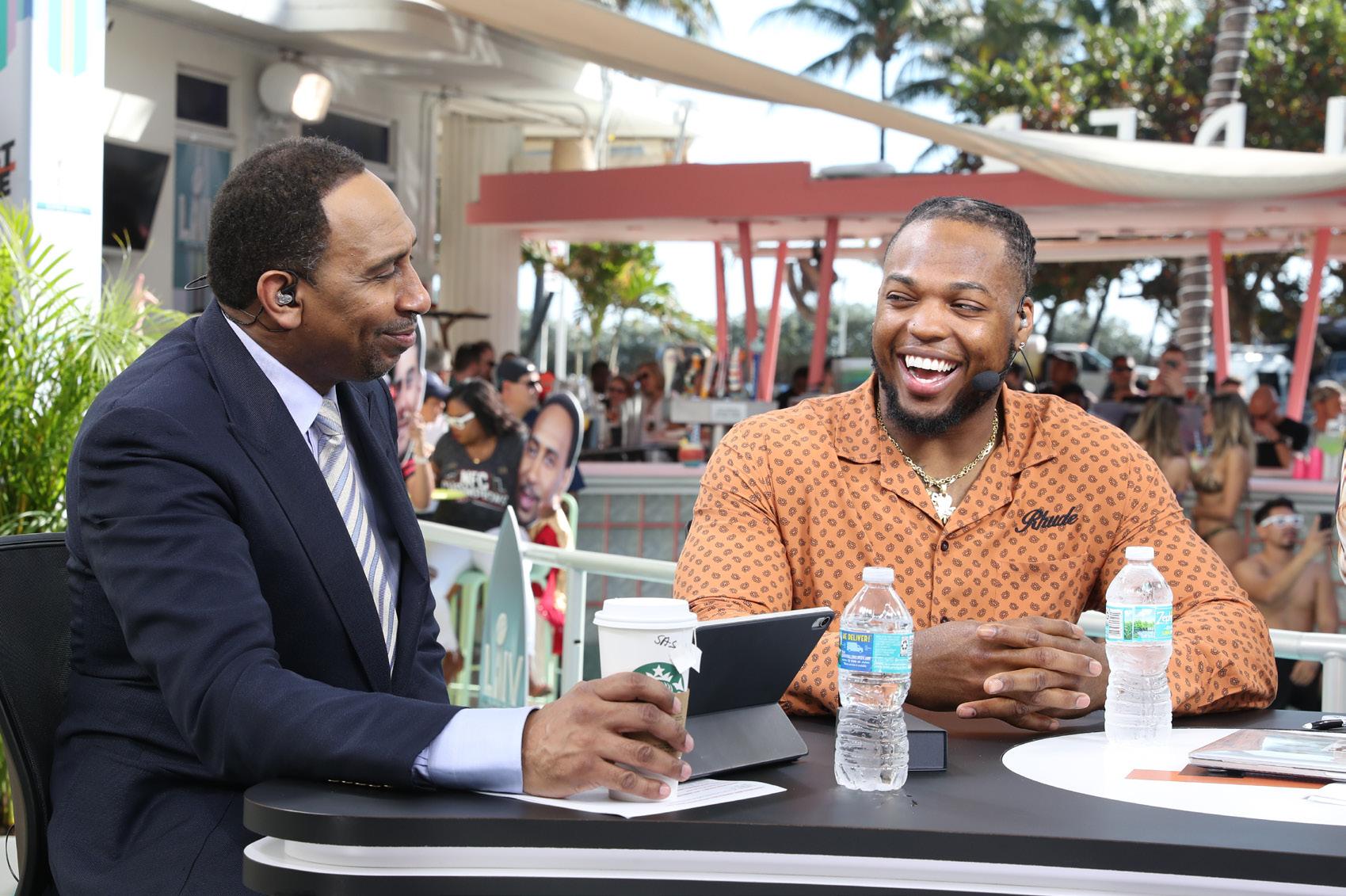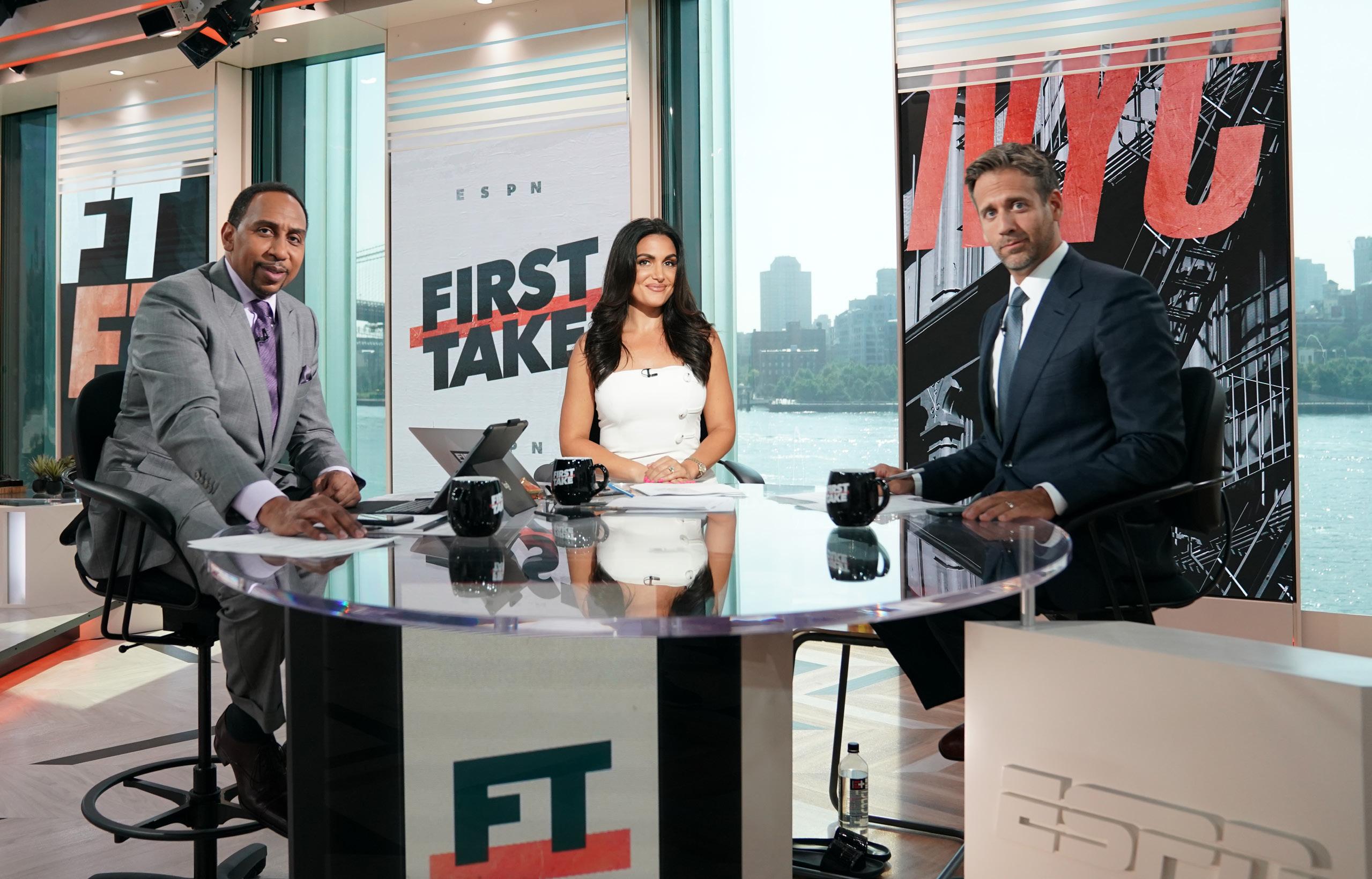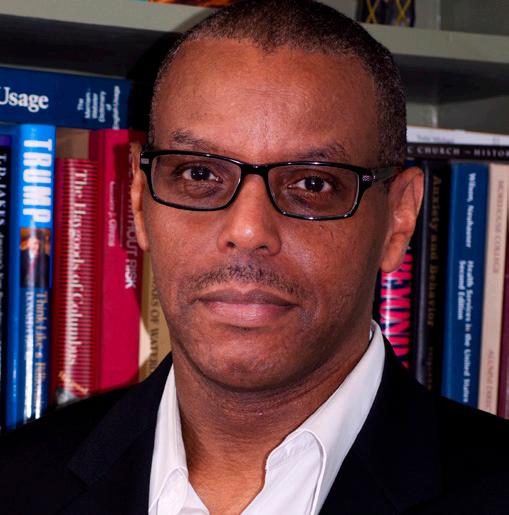
6 minute read
COVER STORY: STEPHEN A. SMITH
from HBCU Times MAGAZINE
by HBCU Times
Stephen Stephen
A. Smith A. Smith
ESPN MEDIA TITAN
BY KEITH HARRISTON
Stephen A. Smith, arguably the most-recognized onair personality at ESPN, came out of Thomas Edison High School in Queens, N.Y., as a combo guard on the school’s basketball team. After graduation, he headed for the Fashion Institute of Technology in Manhattan. Within a year, however, a family friend arranged a tryout for Smith with legendary basketball coach Clarence “Big House” Gaines at Winston-Salem State University (WSSU) in North Carolina.
At the session with Gaines, Smith stood behind the three-point line. He shot a jumper. Swish. And another. Swish. And still another. Swish. In fact, Smith recalls, he did that 14 more times. All in a row.
“I hit 17 straight threes,” Smith said in an interview with HBCU Times. “And that was that.”
He left the Fashion Institute after a year, enrolled at Winston Salem State and played for Coach Gaines. The rest, as they say, is history.
Whether Smith is ESPN’s most recognized personality might be up for debate, but here is what isn’t. Smith is among the network’s highest paid on-air talent, with some reports estimating his recently-signed new contract at over $8 million a year. He works a hectic schedule that includes his daily show, “First Take” on ESPN and appearances on other ESPN-branded platforms. Since late October 2019, Smith also hosts “SportsCenter with Stephen A. Smith,” which serves as the network’s NBA pregame show on Wednesdays during the professional basketball regular season and playoffs. Smith gives much credit of his wildly-successful career as a journalist-turned-sometimes-bombastic-sports personality to his time at Winston-Salem State University, especially to Gaines.
How close were the two? Smith remembers that at the end of one fall semester, he wanted to drive from North Carolina back home to New York for the break. But Smith had no money to pay for gasoline. “I asked Coach Gaines,” Smith remembered. NCAA rules, of course, prohibit coaches from giving money to student athletes.
“So the first thing he said was ‘You got a pretty nice damn watch,’” Smith said. “He took the watch. Gave me money for gas and said, ‘Your watch will be waiting for you when you get back.’ That was Coach Gaines.”
“The things that I’ve been blessed with and fortunate enough to do, he saw that in me back then,” Smith said of Gaines, who died in 2005. “He was like a father to me. We talked every day after practice—hardly about basketball. He constantly lectured me about life.”

Smith, who graduated in 1991 with majors in advertising and communications, cites others at Winston-Salem State and the community there for helping him evolve as a person and a journalist: Larry Little, who teaches in the Political Science Department; Robert DeVaughn, a former director of the Telecommunications Department; Johnny Gates, an editor at the Winston-Salem Journal; and Marilyn Roseboro, from the Department of Communications and Media Studies, who taught Smith newswriting and reporting.



“He could be a challenge,” Roseboro, who retired in 2011, said of her former student. “He tested your knowledge. He was aggressive. When we had guests in class, he didn’t shy away from asking them tough questions.
“I have said before that every professor loves to have students like him,” she said. “He was fearless. He would go wherever the story took him.”
One such time came when Smith wrote a story for the student newspaper saying that Gaines--his coach, his mentor and father figure—should step down from his coaching position because of Smith’s concerns about Gaines’ health.
“[Gaines] knew exactly what I was going to write,” Smith said, “because I went to him and told him what I was going to write. I wanted to look him in the face and tell him. I was worried about his health and thought he should retire from coaching. I wanted to express my love and devotion to him.
“He said, ‘f… you. You do what you have to do.’” The story caused a stir on campus and led some in the university administration to call for disciplining Smith, who was still playing for Gaines. Some administrators even talked about expelling Smith.
“When the chancellor at the time came after me for the story, [Gaines] was the first to come to my defense,” Smith said.
Roseboro, Smith’s one-time newswriting and reporting teacher said that Smith keeps in touch and always responds to her requests. “He provides giveaways. He donates. He shows up in person. Anything he can do, he will do,” she said.
Last fall, Smith’s show “First Take” was live from the 76ers Fieldhouse in Wilmington, Del., as part of Historically Black Colleges and Universities Week. The show, with Smith, Max Kellerman and hosted by Molly Qerim Rose, broadcasted during a college fair at the arena that is home to the Philadelphia 76ers

G League team. Smith said “First Take” helped to raise $3.7 million in scholarship money “in one day.”
“I was happy and proud to be a part of that day,” Smith said. “HBCUs have an awful lot to offer. We have to pay attention to them. I’m a graduate of an HBCU,” Smith said. “Anytime you have an opportunity to give back, you have to jump at it.”
Smith’s relationship with Winston-Salem State certainly has changed since that story he wrote about Gaines almost got him kicked out of school. During the “First Take” live broadcast from Wilmington, Del., last fall, current WSSU Chancellor Elwood L. Robinson showed up. He announced that the university had created the Stephen A. Smith Scholarship Fund, which provides need-based scholarships for student athletes. On his own, Smith has donated hundreds of thousands of dollars to WSSU athletics and the Department of Communications and Media Studies.
Meanwhile, his main ESPN show, “First Take,” has at least six months of consecutive audience growth. And during its timeslot—10 a.m. to noon, ESPN is the top cable or broadcast network with a key demographic: males ages 18-34.
“I say what I mean, and I mean what I say,” Smith said of his success. “To stick around as long as I have, I’ve learned that you have to be true to yourself.”
Smi th


Keith Harriston is freelance writer who lives outside of Washington, D.C. He worked for 23 years at The Washington Post as a beat reporter, investigative reporter, editor and senior manager in the newsroom. He was twice a finalist for a Pulitzer Prize. He has taught journalism at Howard University, American University and George Washington University. He continues to write for The Washington Post. He also has written for www.theroot.com,theundefeated. com, Ebony Magazine and other publications.
He earned a B.A. in communications from Morehouse College, an M.S. in journalism from the University of Kansas and a certificate in news management from the Kellogg School of Management at Northwestern University and the Maynard Institute for Journalism Education.










